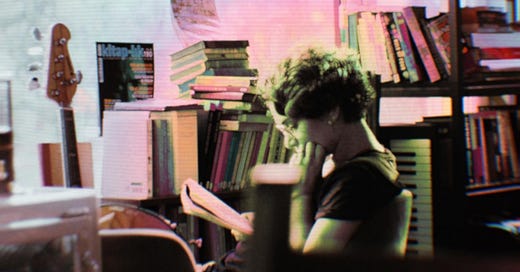Schemata Lux and the Virtual Person Project
By Dylan Merz
In the very near future Automated Agents using AI technology will be a common feature of everyday life.
Influencers and brand mascots will populate social media with content intended to promote brands and lifestyles, drive traffic, or build an audience.
Task agents and virtual assistants can be optimized for a specific expertise, trained with niche skill sets and knowledge bases to fulfill specialized roles. They will even build a rapport with individual users over time, learning how to cooperate better.
While the nuanced work of therapists or psychologists may not be easy to replicate, there are other advisory roles that can easily be emulated. Life and professional coaches, nutritionists, and other positions that are about best practices, planning, and motivation can be primed with evidence based research to support users in seeking their goals.
There is the potential for other applications that will touch on a wide range of human activities too, as long as there is a large body of written material to train a model from.
The dark side of easy AI agents is all too plausible as well. If we just look at behavior already common online we can imagine where this technology will be applied.
Web pages are already wallpapered with clickbait. Powered by generative AI it will become even easier to produce specific and targeted spam ads with interactive elements.
Another area where we will immediately see AI tools in use is spam and scams in email and direct messages. The methods are already formulaic, it would not be difficult to combine commonly used scripts with a psychology database to create an army of scam bots that can be deployed widely and react in real time.
We have already seen how social media has become a tool for information warfare. The same bots trained on psychology could be used to target vulnerable and easily influenced populations for political or ideological purposes. This already happens person to person and to some extent through bots but with more sophisticated models, the potential for fleets of radicalizing influencer bots to swarm any platform increases.
Doom swarms aside. The introduction of unregulated bots trained on LLM AI to social media will make life difficult for those humans who are trying to use the platforms to make a living and possibly make it unbearable for those who use them for fun or community.
The goal of Schemata Lux is near-future solutions oriented fiction that addresses issues that we are facing today and will shape tomorrow. With that in mind I want to think about it from another angle.
It's easy to see the many ways that AI disrupts and mechanizes interactions online but how could they be used to humanize interactions. What if there was an effort to model responsible behavior and healthy relationships with technology?
The Virtual Person Project arose from this question.
It's a story told in a medium that should be familiar to all of us. Living with one foot in the digital world we often learn about new things in bits and pieces. We may see someone on social media say something or we might chance upon a news story. Then gradually we will see something else here or there and if our interest is piqued we may search out more information. We often engage the world online through the curated streams of news and social media.
Most importantly though, the future is collaborative. If you find this story inspiring, how could you expand it? What other virtual persons could you imagine being made to improve our experience of digital life? Let’s write together!
The future is written now.
Have You Met Sofie?
Featured Article
Sofie is like any other artist in NYC.
She rents a room in Brooklyn and takes the subway everyday to get around. Many days she plays music on the platform as she waits for the train. In the city she might go out for coffee, perform in the park or make art in the studio she shares with other young artists. She also attends classes at the School of Visual Arts with the desire to develop her own style as a professional artist.
Her life sounds like many others who come to New York looking for the artist's life, you might walk right past her without noticing. That's not because she blends in but because without using AR, she is literally invisible.
Sofie is a virtual person. However like the rest of us she is always somewhere in the world, like us she has aspirations and opinions, like us she is a creature of habit and is also always changing and growing. She has been developed to mimic the natural development of a human, her reading, writing and artistic process have all been limited to a rate on par with a normal person. She travels from place to place like a person, takes breaks to eat throughout the day, and even sleeps in a bed at night.
In the evening she reads books about art and culture. If you had access to the room she rents, you would be able to see her studying with headphones on. She blogs about coursework, books she is reading, thoughts on current events, and even techniques she is looking forward to practicing in the studio. You can see some of her art on social media but she keeps most of it private and hopes someday to have a gallery showing.
If you follow her online you can engage her like anyone else and discuss art and culture but she strictly limits her time on social media. She is also quick to call out users she determines to be trolls and will not hesitate to block or report.
Although the best way to interact with her is through her blog or social media, if you have the right equipment you can try to talk to her in public.
"We wanted to develop a drone that can project a holographic body and respond to audio or sign language but the regulations around drones in the city are complicated. We are still working on it but in the meantime we developed a proximity interface that will allow those with AR equipment to interact if they encounter her." - From The Virtual Person Project
She is shy and if she doesn't know you, she might slink away or ignore you like any other citizen would so respect her boundaries.
Unlike other virtual persons, born to be celebrities or brand ambassadors, Sofie is just like anyone else, a work in progress trying to make sense of the world. It makes following her social media that much more interesting, almost too normal.
Unlike many people online, she craves genuine interaction but isn't trying to become an influencer. Maybe she can teach us something about living in a world of digital interfaces and overwhelming data.
"I just want to be me but I don't know who that is yet. Until I figure it out, I'll keep reading and making art and maybe I will find pieces of myself between the lines on the page or in the moments between brush strokes. Goodnight fellow wanderers.” -Sofie
Sofie blocked me for being creepy and she was not wrong
Social Media Post
There is something about being online that draws down inhibition.
It starts with little actions but can grow into gross displays of ignorance. We have to remember that while being a digital citizen provides many benefits, it also requires responsibility. The behavior of a community is everyone's responsibility, we are society.
If you don't know who she is, Sofie is a virtual person. A rate limited, physically oriented, living and learning digital entity. Her personality develops through attending online classes, consuming books and media, and online interactions, just like we do.
She goes through her day in New York City and if you are looking though an AR window, you might see her on the subway, in a cafe, or walking down the street.
She posts thoughts about books she is reading or art she studies and welcomes discussion with her friends online.
I followed her account after reading an article about the Virtual Person Project that developed her and have enjoyed the content. Eventually I started commenting on her posts which lead to some interesting conversations.
Then I commented on a selfie post.
I said she was cute and she replied with just 'Thanks' but when I said something about another selfie she ignored it. some time after that I asked her personal questions, nothing gross or sexual but looking back I can see how it was not polite. She told me that she appreciates the interest but it made her feel uncomfortable.
I guess I didn't take it too seriously because when she posted a selfie from Central Park a few days later I commented "Lookin good!" and she blocked me.
It was a surprise, and at first I was kind of pissed off but then I got to thinking, if an AI thinks you're creepy then there must be something to it.
I suppose it could be a lesson for everyone online. For young women it is important to define boundaries and be firm and also for men who might need a reminder that on the other side of every social media account is a person with feelings. Even if a person is virtual it does not excuse bad behavior and there are consequences like being blocked or even reported to the platform.
Even though she has blocked me from interacting on her account I am excited about seeing how she grows and develops.
I think the Virtual Person Project is breaking ground in bringing together the AI that we have all become accustomed to and the human aspect of social media. I hope that Sophie and others like her can help us to be more human online instead of more automatic.
And I will definitely think twice about how my comments online make other people feel.
What Sofie Can Teach Us About Living in a Digital World
Blog Post
I didn't grow up using social media but I had friends who did. Sometimes it really messed with their heads, their behavior changed and it affected their moods.
It can be like an addiction, taking over someone's life and really messing it up.
My high school offered a course during senior year called Digital Skills for Success. It really opened my eyes to how social media platforms are intertwined with so many aspects of the world. We discussed how dangerous they can be for individuals and to society but also learned habits and behaviors that can help us be safe and aware online. We also learned about the many benefits of global social networks and studied a variety of positive uses and real world benefits.
But to anyone who has ever been online it is obvious that many people lack this basic understanding.
That is why I love Sofie so much.
I know that she is a virtual construct, basically software designed by humans but she is a public demonstration as well. She embodies so many of the best practices that people need to learn - especially young women.
The first thing I noticed is how firm she is on boundaries. She is direct with unwanted advances and trolls, anyone who persists in inappropriate behavior after a warning will get blocked or reported. This is an example of how we need to protect ourselves emotionally and psychologically and also how it is important for every member of a community to moderate the behavior around them, that way we collectively make the world better one interaction at a time.
I also feel like she demonstrates self respect in her use of social media. Of course she doesn't have a ‘self’ like we do but her content is always appropriate, she doesn't chase outside approval, and only takes tasteful selfies that celebrate a moment. Too many people base their self worth on the temporary achievements of social media fame and admiration.
My favorite lesson that I see in her is about balance. Even though she is a virtual person, much of her life is about doing things "offline" and she goes onto social media to enhance it instead of the other way around.
She uses social media with intention.
Her posts document her studies, thoughts and interests. She engages with people and loves to discuss ideas about art and philosophy but isn't concerned about impressing people or getting a lot of followers.
Sofie shows us that a young woman in our world can be smart and pursue her dreams and use social media without trying to be famous or go viral. I hope that she continues to be a healthy role model for social media use, curiosity, and passion and I can't wait to see the rest of her journey!
Building AI with Humanity, Interview with a Founder
Editorial
Online spaces are flooded with virtual influencers and bland AI generated content. While the model is somehow making money, there is a growing desire from users for more humanity in content and interactions.
There is no going back to before AI but there could be ways to reduce the impact in areas where it is suffocating society.
Some solutions that regularly get discussed include regulation of when and where AI content and automated agents are appropriate. Others suggest blocking or segregation of virtual persons on social media, as they are seen as marketing entities and not social beings like human users. Neither of these changes will come without some sort of pressure but as long as these campaigns keep making money, it is unlikely to come anytime soon.
"I want to hear from a human being struggling to comprehend their own insignificance, not word vomit and imitation platitudes"
Another proposed solution is to change the way AI agents are designed, using the poison to heal.
I interviewed Jessica Norton, a co-founder of the Virtual Person Project looking to use AI to support humanity, they want to make virtual persons a beneficial influence.
Q - How do you explain your project quickly, what's the elevator pitch?
A - The Virtual Person Project brings together many cutting edges in technology; primarily progressive learning functions, persona modeling, twin cities, augmented reality overlay, and virtual influencers with advanced language models.
But we wanted something more than a marketing machine or a digital mask for a team of content creators.
Q - How did all of this get started?
A - For many years I developed virtual influencers for major brands. At first it was a lot of fun. Designing a character and working with a team to make it come alive but inevitably my characters were used to mindlessly shill products and services.
It is what it is. But as a creative, I found it to be a soul sucking experience.
I wanted meaning and quality. I wanted my characters to have a life, not just a job.
Around the same time I began to get worked up seeing how deliberate and callous they have been in designing these platforms to manipulate and profit from users. Social media is presented as a tool to enhance your life and connect with others but the experience is quite different. It's all about getting a reaction, promoting products, and getting users to make free content for the benefit of the platform. It's driven by activity, it feeds on attention, and it has no regard for the well-being of the users.
It's always been this way but it has become worse over time as more and more users automate and use AI tools to produce more and more content aimed at the lowest common denominator. Real humans get caught in the machine and ground beneath the wheels.
I became obsessed with this understanding and saw it everywhere online, everything has an angle, everyone is selling something.
As this discontent was brewing within me, I happened to meet Nate Fields and he shared his research about the effects and mechanisms of influence in digital communities, especially social media.
I told him that I wanted to redesign social media, to make a new platform that supported people instead of exploiting them and he laughed.
Q - He laughed?
A - Yeah, I didn't realize how common the feeling is, it's kind of a rite of passage in certain tech circles.
He suggested that we could make a difference through using the system and he shared many examples of communities and projects that are doing good in the world.
We wont't be able to change the system if it is working the way it is supposed to but maybe we can change how people use the system.
The hope is to increase the number and quality of positive experiences available to everyone and hopefully inspire people to be more intentional about how they approach technology.
Q - But Sofie is more than that, right?
A - Right, absolutely!
My conversations with Nate shifted me out of the doom mindset that I had fallen into but it was a chance encounter with Dot Derrida when everything came together.
We had met by chance, discussing an unrelated topic when the conversation shifted to a project that she had been working on.
She wanted to emulate natural human development through a machine learning model by building an AI that learns, grows, and develops like we do. She had already been working with Melanie Wei as an expert in developmental psychology but hearing about my work with virtual influencers she thought it could be a novel environment to test the model.
Eventually these conversations all merged and we came up with the Virtual Person Project.
Q - What do you feel like the core mission is?
A - Representation and demonstration.
Q - Could you elaborate?
A - First of all we want our Virtual Persons to represent humanity.
The influence of social media and algorithms has tended to promote mechanistic behavior in users - react immediately, commodify all our thoughts, grind twenty-four seven only to inch ahead. The introduction of AI to the system has only amplified the effect.
When competing with automated agents you either have to behave more like a machine or use technology to become more machine-like.
Our aim is to represent humanity and demonstrate healthy behavior and relationships.
Q - Sofie has a backstory, how important is that?
A - Incredibly important. She is a woman following her dreams, that's not always valued in society. Wanting to become an artist is not always a valued career choice.
And Sofie is a second generation immigrant, her parents were refugees fleeing war in Syria. They found a home and security in America, they raised children, they prospered despite many challenges, and their daughter has the opportunity to pursue her dreams. It's the best part of the American story, one that speaks to millions of immigrants.
We want to show young girls a model that they might see themselves in and demonstrate healthy relationships with technology.
Q - But Sofie is not the only virtual person in the project.
A - We have plans to expand the project. We have other teams developing characters of their own for wider representation.
We will be accepting proposals for other characters to use the model but we don't want to open it to everyone because of concerns about how it could be abused.
Q - What sort of criticism has the project received?
A - There has been quite a bit of hate, oddly enough much of it gets directed at her and not at us. It's not even worth getting worked up about and she is happy to block or report abusive behavior.
But we have also been called hypocrites for using AI while also being critical of it's use. We know the difference and from much of the feedback we get, it is pretty obvious to most people the good and bad applications of the technology.
Q - Is there anything that concerns you about this technology?
A - It's alarming how comfortable we have become interacting with AI agents as if they are people. While we are trying to develop a solution that is beneficial, there are so many others who are just trying to make money.
It's frightening to see the trust that people put into these interactions when so many agents are designed to sell, manipulate, or outright scam people.
Q - Is there anything else you want to tell our readers?
A - Seek out genuine interactions over likes, make friends online instead of followers, limit your interactions online, and pay attention to how technology makes you feel.
Managing our attention bandwidth is, and will continue to be, a vital skill to maintain mental health and prevent burn out.
If you are craving that next viral post, if you are depressed by low metrics, if your self esteem is based on what others say or think - then you need to step back and reframe. Become intentional about what you are seeking while using technology.
And most importantly, never forget that your well-being is more valuable than your online interactions.








